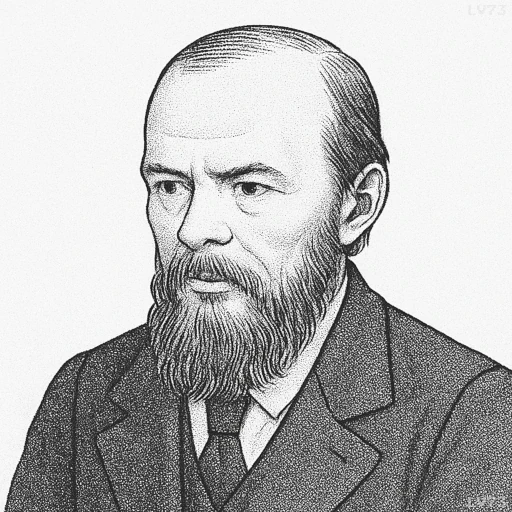“Much unhappiness has come into the world because of bewilderment and things left unsaid.”

- November 11, 1821 – February 9, 1881
- Born in the Russian Empire
- Novelist, philosopher
table of contents
Quote
“Much unhappiness has come into the world because of bewilderment and things left unsaid.”
Explanation
In this quote, Dostoevsky reflects on the human tendency to leave things unspoken or misunderstood, and the emotional and psychological consequences that arise from such silence. He suggests that bewilderment—a state of confusion or being emotionally lost—and the failure to communicate important feelings, desires, or truths, often lead to misunderstanding and, ultimately, unhappiness. In Dostoevsky’s world, the inability to articulate one’s inner struggles, desires, or beliefs causes individuals to suffer in isolation. This theme is prevalent in many of his works, where characters wrestle with deep, unresolved emotions and fail to express them in ways that could heal or clarify their personal conflicts. Unspoken words often become a source of internal turmoil, creating a disconnect between the individual and others, and also between the individual and their own sense of self.
Dostoevsky often depicted characters whose psychological fragmentation arose from unacknowledged truths. In novels like The Brothers Karamazov and Notes from Underground, characters experience tremendous suffering not only because of their external circumstances but also because they cannot find the words or courage to express their innermost thoughts. The bewilderment Dostoevsky speaks of is both a moral and existential confusion, a loss of direction that happens when people fail to communicate what is truly important to them, whether due to fear, shame, or a lack of self-awareness. This failure to speak out and engage with others leaves them in a state of internal conflict, unsure of how to reconcile their desires with the world around them.
In the modern world, this quote speaks to the importance of communication and the emotional toll that misunderstanding can take. In an age where technology and social media often replace face-to-face conversations, the tendency to leave things unsaid—whether in personal relationships, work environments, or even in broader societal discourse—can cause significant emotional estrangement. The fear of vulnerability, the discomfort with conflict, or the pressure to conform can all contribute to the silence that leads to unhappiness. Additionally, the rise of anxiety and mental health issues in modern society can often be traced to feelings of isolation and the inability to express the turmoil inside. Dostoevsky’s insight serves as a timeless reminder that unhappiness is often not only caused by external circumstances but also by the internal burden of the things we fail to say or communicate with others, or even with ourselves.
Would you like to share your impressions or related stories about this quote in the comments section?



